"To the conquered, hate or compassion; to the victor, the potatoes"
Last active 2 hours ago
Don't wanna be here? Send us removal request.
Text

Die Schachspieler (1831), Moritz Retzsch
#music#orchestra#classical studies#renaissance#symphony#baroque#classic literature#art#art critique#college#mine#classical musician#classical art#composer#italian#fineart#musician#academics#aesthetic#academia#classic academia#literature#dark academia#church#violin#fine art#painting#singer#christianity#string quartet
22 notes
·
View notes
Text




on today's outing I came into contact with the production material from the rca victor at casa edison rio de janeiro! (original song btw)
Lyrics:
If only I were that necklace of thine Would guard thy form, this fate'd be mine Come nightfall thou wouldst set me free, From this sad torment, two joys to see: The clasp would snap at thy graceful nape On the oaken bench wouldst thou me drape, Before the old piano, I would bring Heaven's poetry, like stars that sing Thou wouldst sleep, wrapped in sandalwood's Pure perfumed vow, and if I could With such verses a dream I might compose Yet, being mute, for thee, I were doze And thou wouldst wake amidst thy sleep Sometimes disturbing thy poise so deep That when longing haunts thy sweet dreams Thou wouldst weep before thy schemes And thou might run to fetch the chain Perhaps to hold it just once again Wouldst press me tightly to thy breast And we'd share one bed for our rest.
#music#art#art critique#college#symphony#classical musician#classical art#composer#mine#piano#musician#academics#academia#classic academia#song#radio#musique#singer#original poem#poetry#brazil#folk music#20's#latino#vintage#dark academia#academia aesthetic#aesthetic#portuguese#spanish
14 notes
·
View notes
Text

"So writing is the way of those who use words as bait: the word catching what is not a word. When that non-word takes the bait, something has been written. Once you've fished between the lines, it could be easy to throw the word away. But then the analogy stops: the non-word, by taking the bait, has incorporated it. What saves you is reading ‘absent-mindedly’."
Clarice Listpector
#classical studies#classic literature#writting#poetry#fine art#dark academia#quotes#writter#bookish#bibliophile#bookworm#books and reading#book blog#philosophy#classics#literary quotes#academics#Aesthetic#academia#classic academia#literature#brazilian literature#autumn academia#dark acadamia aesthetic#romantic academia#light academia#academia aesthetic#dark academism#brazil#portuguese
27 notes
·
View notes
Text
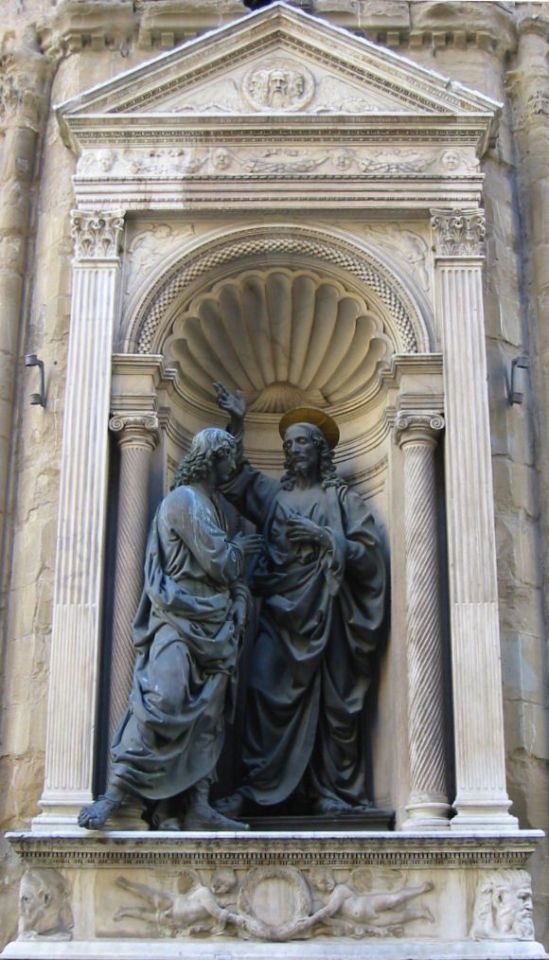
Christ and Saint Thomas by Verrocchio, Orsanmichele, Florence
made in the time of a tea
#music#orchestra#classical music#classical studies#renaissance#symphony#classic literature#art#art critique#college#mine#classical musician#classical art#composer#baroque#italian#fineart#musician#academics#aesthetic#academia#classic academia#literature#dark academia#church#choral#fine art#sculpture#singer#christianity
29 notes
·
View notes
Text








Women. From 'The Waverley pictorial dictionary : Wheeler, Harold Felix Baker', 1877 - 19xx
7 notes
·
View notes
Text
The Dreamer

Unpublished Frontispiece for Baudelaire’s ‘Les Fleurs du Mal’ (1857), etching by Félix Bracquemond.
#academics#aesthetic#art#academia#french#art museum#experimentalart#etching#classic academia#museum#dark academia#poet#chaotic academia#college#poem#autumn academia#dark academia aesthetic#fine art#romantic academia#light academia#academia aesthetic#literature#modern#dark academism#moodboard#dark#coffee addict#book
51 notes
·
View notes
Text
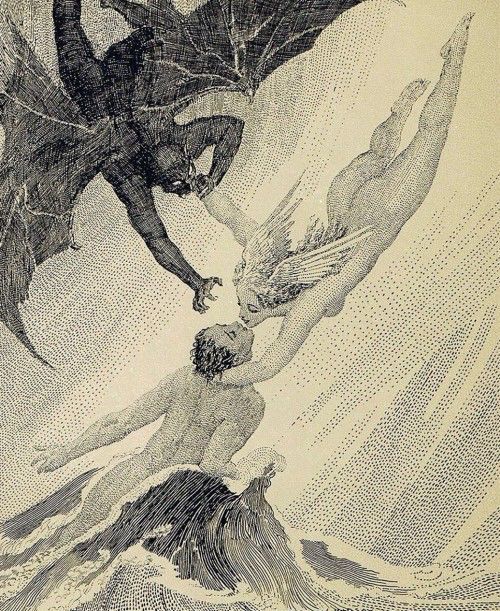
Marriage of Heaven and Earth, by Norman Lindsay (1879–1969)
A celestial struggle etched in light and shadow whispers of the yearning for transcendence, a sacred union that defies the weight of mortal constraint. A man reaches toward the heavens, lifting a form that clings to hope. The sacred union is not bound by the fragile threads of the fleeting promises of earthly desires, but it is a bond forged in surrender, where the self dissolves in a sea and only love remains, like the angel’s hand is an act of defiance against the pull of pride and material hunger—a leap into the ineffable. Outstretched arms, unfurls wings, the silent of the human form, who kisses in closed eyes, caught between the abyss and the stars. It is a reminder that true union is not spoken but felt, not told but known in the marrow, in the spirit. This tableau, caught between ascent and descent, seems to mirror the soul in a very platonic journey.
Power relations flow beneath these themes. Differing from the common historical interpretations of gender symbolism in art, here the man is not represented as death, a fallen angel or other figures of temptation, impetuosity or secularity , nor the woman as a passive figure. The man does not dominate but lifts. The darker force beside, who tries to clutch with possessive intent, is a shadow of dominion—the very antithesis of the sacred union. But is this dichotomy inevitable, or even fair? Such interpretations often bind us to traditions of thought that divide rather than unite. What if this is no dichotomy at all but an interplay of forces within every soul? Perhaps the man and the woman are not distinct beings but facets of one essence—the striving and the surrender, the human and the divine. The man’s ascent does not diminish his divinity, just as the woman’s grace does not preclude her struggle.
Here, we glimpse the wisdom of ancient myths: the dance of Shiva and Shakti, the eternal embrace of Yin and Yang. It is a call to relinquish control, to meet the other as an equal in the vast, uncharted expanse of love. It is the ultimate act of faith: to leap into the unknown, trusting that love will bear you for your corresponding sky.
Text by @suigenerisstuff
#academics#aesthetic#art#academia#article#art museum#fine art#painter#academia aesthetic#classic academia#museum#dark academia#literature#chaotic academia#college#painting#autumn academia#dark acadamia aesthetic#romantic academia#light academia#uni#english literature#dark academism#dark acadamia quotes#moodboard#dark#coffee addict#coffee and books#book#art critique
21 notes
·
View notes
Text
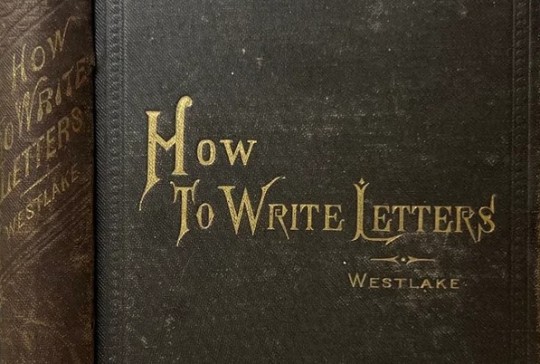
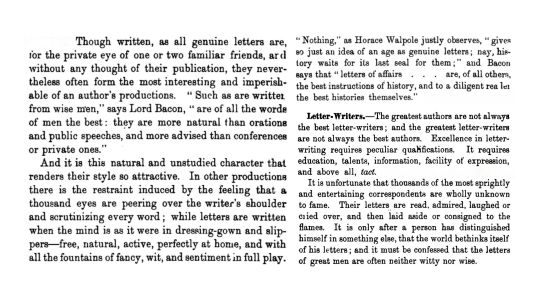
From J. W. Westlake's book 'How to Write Letters' (1876), Chapter IV: The Literature of Letters, Section I: A Bird's-Eye View of the Field of Letters
#classical studies#classic literature#writting#poetry#dark academia#quotes#writter#bookish#bibliophile#bookworm#books and reading#book blog#classics#literary quotes#academics#Aesthetic#academia#classic academia#uni#literature#college#english literature#autumn academia#dark acadamia aesthetic#romantic academia#light academia#academia aesthetic#dark academism#letters
28 notes
·
View notes
Text








Women. From 'The Waverley pictorial dictionary : Wheeler, Harold Felix Baker', 1877 - 19xx
#academics#aesthetic#art#academia#art museum#photo#classic academia#museum#dark academia#album#chaotic academia#college#autumn academia#dark academia aesthetic#fine art#romantic academia#light academia#academia aesthetic#literature#modern#dark academism#girl#moodboard#dark#coffee addict#book#women#beauty#ladies
7 notes
·
View notes
Text
Carpe Diem

Doodle found in page 367 of 379 of this paper manuscript from 1396. A probatio pennae is a sign that the copyist or a reader made in order to test the quill. From the Engelbert Stiftsbibliothek, cod.339.
#classical studies#classic literature#writting#poetry#fine art#dark academia#quotes#writter#bookish#bibliophile#bookworm#books and reading#book blog#philosophy#classics#literary quotes#academics#Aesthetic#academia#classic academia#uni#literature#college#english literature#autumn academia#dark acadamia aesthetic#romantic academia#light academia#academia aesthetic#dark academism
115 notes
·
View notes
Text

Diderot et l'abbé Barthélémy : dialogue philosophique inédit, 1912, Paris : A. Messein
"For me, a table is just a table, a chair is just a chair, bread is just bread, wine is just wine. I can't tell you how much this lack of faith worries me, how much it obsesses, upsets, poisons and tortures my days and nights, and how much I lose the desire to eat and drink."
Denis Diderot
#classical studies#classic literature#writting#poetry#fine art#dark academia#quotes#writter#bookish#bibliophile#bookworm#books and reading#book blog#philosophy#classics#literary quotes#academics#Aesthetic#academia#classic academia#uni#literature#college#english literature#autumn academia#dark acadamia aesthetic#romantic academia#light academia#academia aesthetic#dark academism
34 notes
·
View notes
Text
À Celle qui est trop gaie
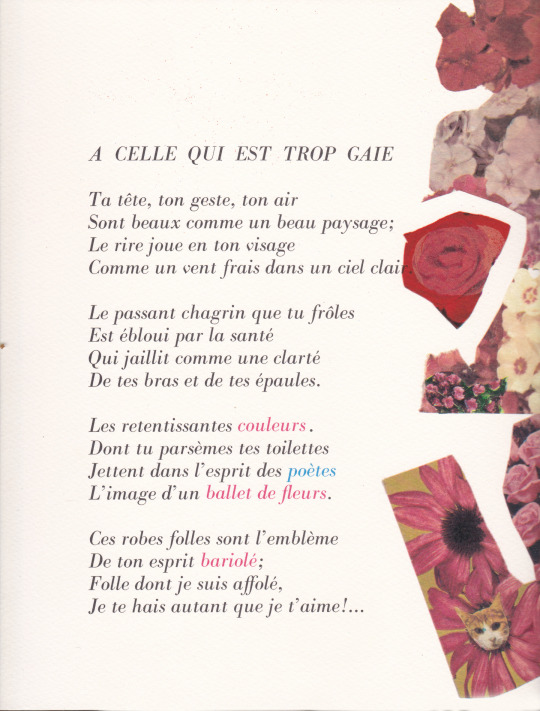
From Le poéte maudit, Charles Baudelaire's Les Fleurs du mal (1857)
Your head, your gestures, and your air Are lovely as a landscape; smiles Rimple upon your face at whiles Like winds in the clear sky up there.
The grumpy passers that you graze Are dazzled by the radiant health, And the illimitable wealth Your arms and shoulders seem to blaze. The glaring colours that, in showers, Clash in your clothes with such commotion, In poets' minds suggest the notion Of a mad ballet-dance of flowers. These garish dresses illustrate Your spirit, striped with every fad. O madwoman, whom, quite as mad, I love as madly as I hate. Sometimes in gardens, seeking rest, Where I have dragged my soul atonic, I've felt the sun with gaze ironic Tearing the heart within my breast. The spring and verdure, dressed to stagger, Humiliate me with such power That I have punished, in a flower, The insolence of Nature's swagger. And so, one night, I'd like to sneak, When night has tolled the hour of pleasure, A craven thief, towards the treasure Which is your person, plump and sleek. To punish your bombastic flesh, To bruise your breast immune to pain, To farrow down your flank a lane Of gaping crimson, deep and fresh. And, most vertiginous delight! Into those lips, so freshly striking And daily lovelier to my liking — Infuse the venom of my sprite.
#classical studies#classic literature#writting#poetry#fine art#dark academia#quotes#writter#bookish#bibliophile#bookworm#books and reading#book blog#philosophy#classics#literary quotes#academics#aesthetic#academia#classic academia#poem#literature#college#english literature#autumn academia#dark acadamia aesthetic#romantic academia#light academia#academia aesthetic#dark academism
20 notes
·
View notes
Text



recitals and more
#classical studies#fine art#dark academia#bookish#bibliophile#books and reading#trip blog#classics#academics#aesthetic#academia#classic academia#uni#college#autumn academia#dark acadamia aesthetic#romantic academia#light academia#academia aesthetic#dark academism#personal#mine#trip#vacation#museum#historic#brazil#art#travelling#travelblr
37 notes
·
View notes
Text

La Saltarelle (1800s), Dominique Louis Papety
#music#orchestra#classical music#classical studies#renaissance#dance#symphony#classic literature#art#art critique#college#mine#classical musician#classical art#composer#baroque#italian#flute#clarinet#fineart#musician#academics#aesthetic#academia#classic academia#uni#literature#painting#drawing#dark academia
17 notes
·
View notes
Text
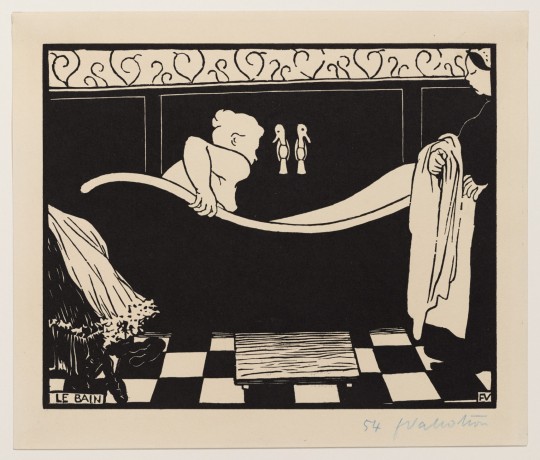
Le Bain (1894), Félix Vallotton
#academics#aesthetic#art#academia#french#art museum#fine art#painter#academia aesthetic#classic academia#museum#dark academia#literature#chaotic academia#college#painting#autumn academia#dark acadamia aesthetic#romantic academia#light academia#uni#english literature#dark academism#dark acadamia quotes#moodboard#dark#coffee addict#coffee and books#book
34 notes
·
View notes
Text
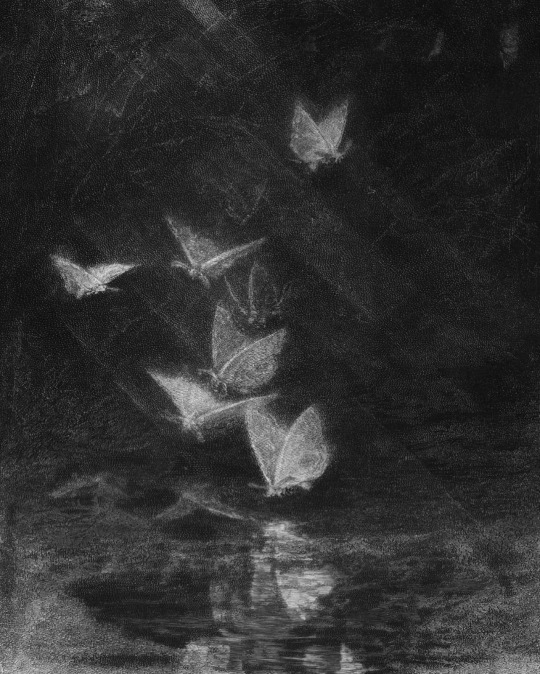
"Night Moths" by William Baxter Closson
the image had me very creative, so I composed this.
#music#orchestra#classical music#classical studies#impressionism#debussy#classic literature#art#art critique#college#stravinsky#symphony#classical musician#classical art#composer#shostakovich#ravel#flute#clarinet#fineart#fine art#musician#academics#Aesthetic#academia#classic academia#uni#literature#painting#drawing
25 notes
·
View notes
